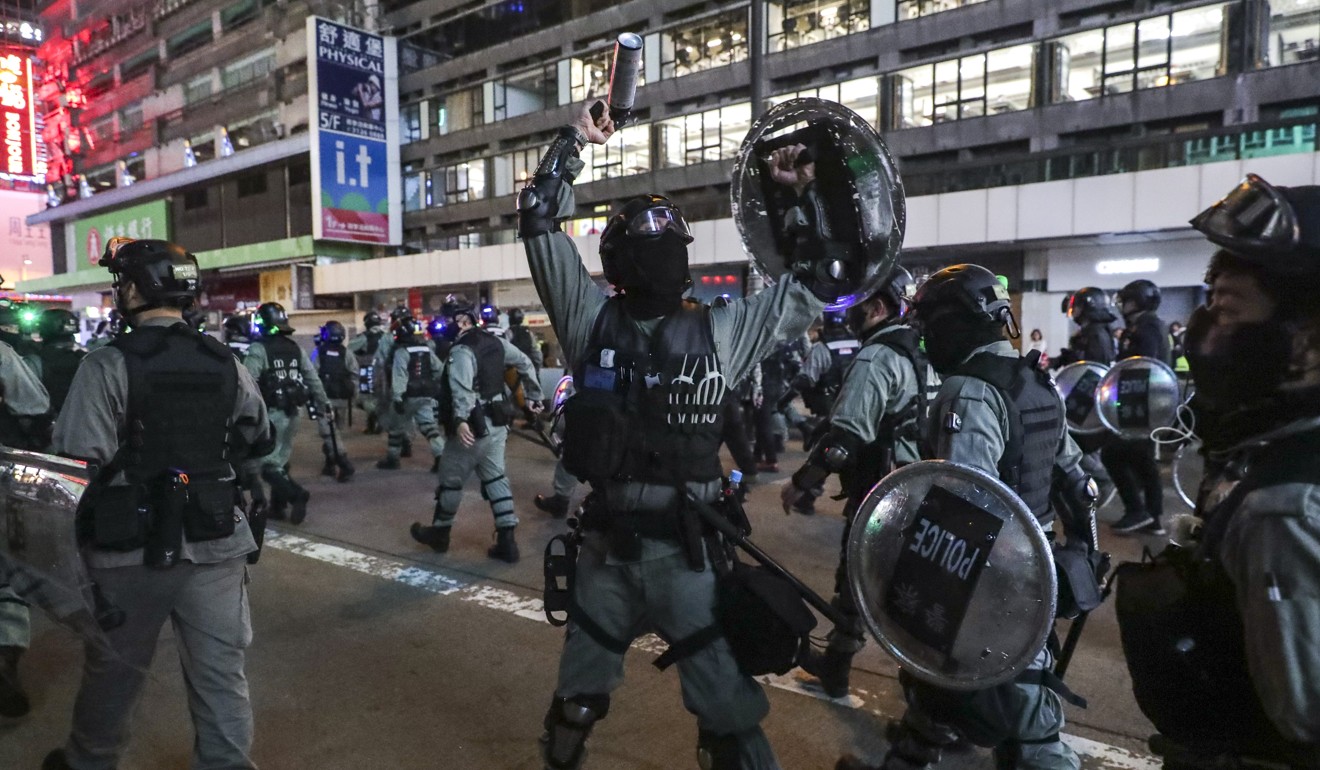
After protest-wracked Hong Kong’s dismal 2019, even Santa has little to offer – except a reminder that this city remains magical
- Hong Kong’s year was defined by the government’s misguided extradition bill and its utter failure to resolve discontent
- But the city remains a special place and will stay that way: throughout the crisis, ‘one country, two systems’ has held up
Whereas last year, the pub was the only place I could find Santa Claus for an interview, this year, it was a Sunday – walking down Hennessy Road with a million other people. “I didn’t know you were a yellow [pro-democracy],” I began. “You always wear red.”
“I can’t change my brand image now”, he replied, “and I don’t need a mask with this beard!”
I asked why he was demonstrating at his busiest time. “I now have robot manufacturing and automated storage and retrieval. I just need a few elves to look at the screens. The rest are now selling real estate – or they were,” he said darkly.
“So there’ll be less magic this year?” I asked.
I pointed out that Chief Secretary Matthew Cheung Kin-chung did not know why people are so angry. Santa snorted. “He may be a bit slow. Average workers’ real wages have risen slowly in the past decade, while our government ministers are among the best paid in the world. And not just them.
“The chief executive of the MTR Corp was fired for underperformance and picked up HK$16 million last year. The Link Reit CEO pocketed HK$66 million last year and HK$52 million the year before that, and his company’s revenue is based on the poorest in the city.
One formula, two different situations: why Hong Kong can never be like Macau

I reminded Santa that China had resisted imposing their leadership on Hong Kong. “Well, it’s been lacking in our chief executives, who have a habit of poking a stick into the hornets’ nest every time they speak. At least the police have not indiscriminatingly fired into crowds of rioters – that would have destroyed our future as a global financial centre,” he said.
I pointed out that I did make a case for a governor for Hong Kong as the only way to mediate between the government, the cartels and the people.
No democracy? Try welfare state
“The violence this year means that the hoped-for democracy is unlikely ever to come to Hong Kong, no matter how many trains are burned, or shops smashed,” he said. “But the good news is that the authorities won’t want to mess with Hong Kong for a long time to come. They know that ‘one country, two systems’ works and that should preserve the status quo.”
To try to get him to stop ranting, I closed by saying that, surely, some good news must have come out of 2019? His lined face softened, “I’ve learned a few things from the protests. Schools and universities are delivering classes online. I’m only in the cave three days a week these days. No putting on my red suit and hat every day, no traffic to fight. 2020 is opening up a new way of working for my business.”
Protesters could focus on welfare goals to win Beijing’s support
He brightened further, “I went on the Peak Tram the other day. No waiting, like the old days. I took the reindeer on a delightful walk around The Peak and Mrs Claus on a stroll in a deserted Repulse Bay. No buses, no crowds. The rioters did us a favour by removing the pedestrian barriers – it provides a great freedom to jaywalk.
“My business has been hurt but many of us can look forward to cheaper rents and cheaper prices. The government will subsidise the rich who have lost out. And”, he guffawed, “our young people should have a great Olympics next year with their new-found expertise in running, jumping, throwing, boxing and archery!”
“Despite it all,” he said as he looked up at the glamorous towers of Central now bathed in the low light of dusk, “Hong Kong is still a magical place – never bet against it!”
Richard Harris is chief executive of Port Shelter Investment and is a veteran investment manager, banker, writer and broadcaster, and financial expert witness

